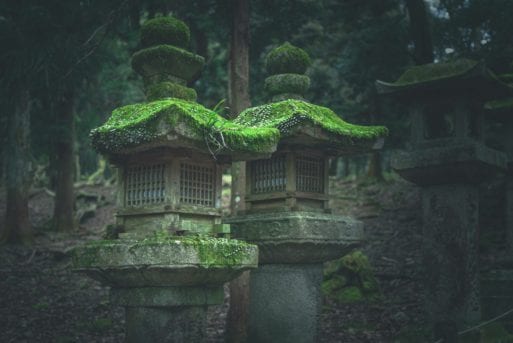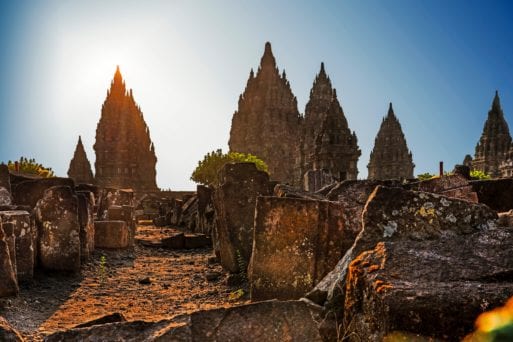
“The Ghost Road” is an Eastern classic and an ideal example of poetic literature of great antiquity. Its original author was Du Fu, a Chinese poet and politician of the Tang Dynasty. The bulk of his poems recounted tales of the great empires and kingdoms that once dominated China.
In his lifetime, Du Fu experienced many losses, from his mother at his birth to a number of his siblings, friends and children. This gave him a sober outlook on reality and all it means to be human. “The Ghost Road” speaks to the fleetingness of life on both a small, personal scale and the grand scale of palaces and kingdoms.
In the first stanza of “The Ghost Road,” Du Fu alludes to the ruins of a once-mighty kingdom or civilization, one that is now only ruins that are occupied by rats. The only sounds this once-mighty kingdom makes now are those of his own feet on its tiles.
The winds and the pines are whispering,
The river girds in its flight,
My footfalls sound through ancient tiles
Where grey rats flit from sight.
Du Fu leads his poem with the reminder of the ever-present natural environment of wind, trees and a river. In this way, he reminds us of the temporal nature of humans. No matter how big a kingdom, palace or edifice you have, in the end, nature is all that remains.

Du Fu’s final stanza is especially haunting. Rather than speak of the ghosts of kingdoms, it cries for the ghosts of men — specifically, the citizens who made up this once-mighty kingdom and those who died by the thousands defending it.
Blend to a chant bizarre,
And the purple leaves are carpeted
For Autumn’s avatar.
The death-doomed legions thunder past
In the wake of fleeting years;
I fain would drown their tramp with song,
But all my songs are tears.
It is in Du Fu’s last stanza that his Confucian philosophy is at its most potent. A philosophy that preaches the importance of personal feelings and human relationships over any special veneration of nature, it focuses attention on the sorrow of the lost stories of those who have come before us.

 “The Ghost Road” by Du Fu, translated by L. Cranmer
“The Ghost Road” by Du Fu, translated by L. Cranmer



 Composting Bodies Is Now Legal in a Dozen States
Composting Bodies Is Now Legal in a Dozen States
 “Hand to Earth” by Andy Goldsworthy
“Hand to Earth” by Andy Goldsworthy














